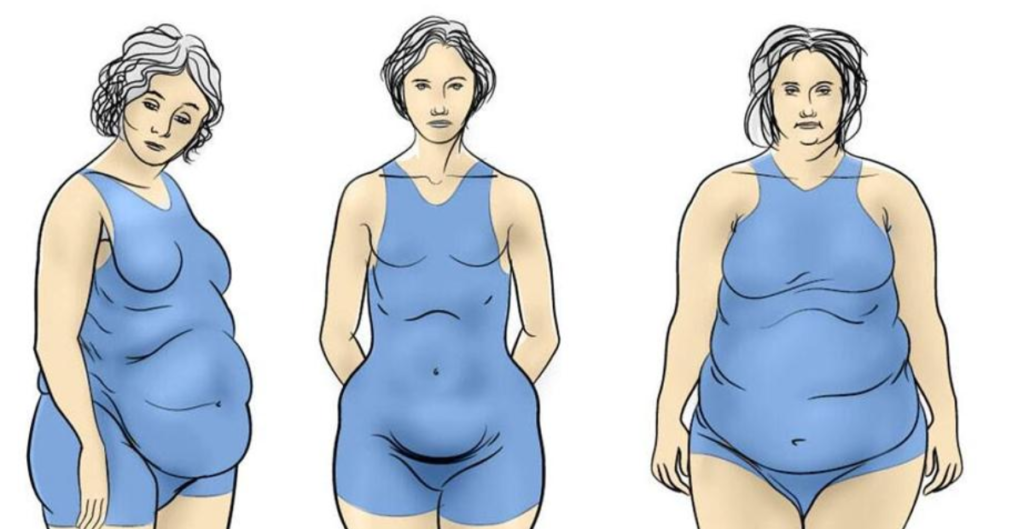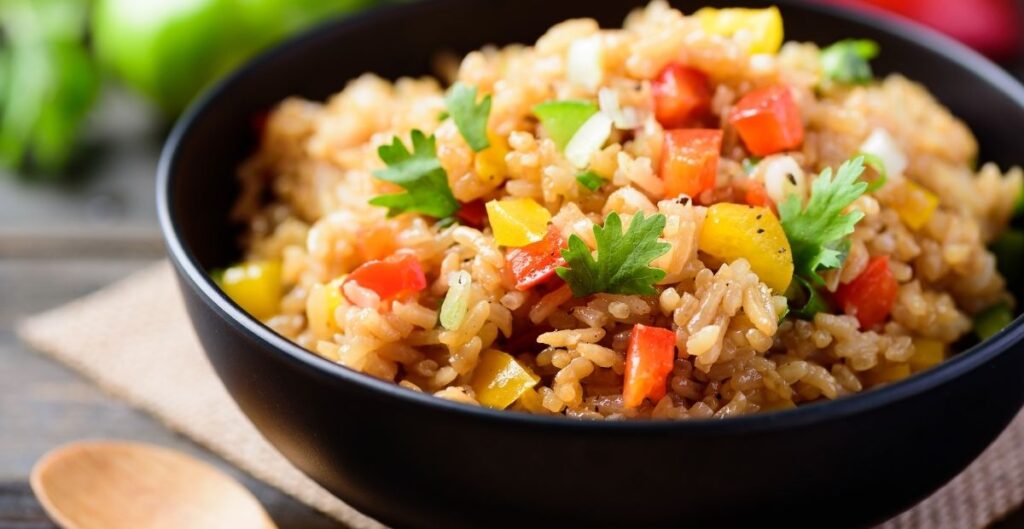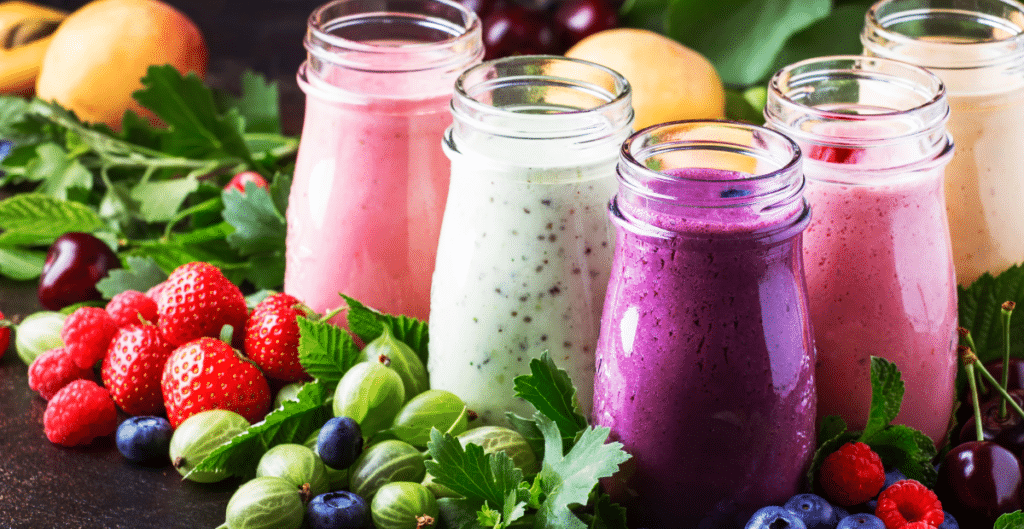Ovary Body Type Diet: A Guide to Hormonal Balance
The ovary body type is a term used to describe individuals with a unique fat storage pattern, often characterized by weight gain in the hips, thighs, and lower abdomen. This body type is believed to be influenced by hormonal imbalances, particularly involving estrogen dominance and progesterone deficiency. While this concept is often associated with holistic health approaches, the underlying science emphasizes the importance of nutrition, lifestyle changes, and hormone management to achieve better health outcomes.
In this detailed guide, we will explore the concept of the ovary body type, discuss how hormones affect fat storage, and provide a well-researched dietary strategy, along with a complete 14-day meal plan tailored to your needs.
Understanding the Ovary Body Type
The ovary body type is linked to hormonal imbalances, especially involving estrogen and progesterone. These hormones play a crucial role in regulating a woman’s reproductive health, fat distribution, and overall well-being. For those with the ovary body type, hormonal imbalances can lead to:
- Fat storage in the lower body (hips, thighs, and lower abdomen)
- Water retention and bloating
- Fatigue and mood swings
- Menstrual irregularities or painful periods
- Sugar and carb cravings
- Symptoms of estrogen dominance, such as fibroids or PCOS (Polycystic Ovary Syndrome)
What Causes Hormonal Imbalances in the Ovary Body Type?
Estrogen Dominance
High levels of estrogen relative to progesterone can trigger fat accumulation in the hips and thighs. This imbalance may be caused by:
- Stress and elevated cortisol levels
- Poor liver detoxification
- Environmental toxins (e.g., xenoestrogens found in plastics and cosmetics)
- Consumption of processed foods or high-sugar diets
Insulin Resistance
High insulin levels, often due to a diet rich in refined carbs and sugars, can exacerbate fat storage in this body type.
Inflammation
Chronic inflammation from poor dietary choices or stress can worsen hormonal imbalances and hinder weight loss.
Thyroid Issues
An underactive thyroid can slow metabolism and contribute to weight gain, fatigue, and other symptoms associated with the ovary body type.
The Role of Diet in Balancing Hormones
A tailored diet plays a pivotal role in balancing hormones, reducing inflammation, and promoting healthy fat loss for the ovary body type. The following principles are key:
- Support Estrogen Detoxification
- The liver is responsible for metabolizing estrogen. A diet rich in cruciferous vegetables (e.g., broccoli, cauliflower, kale) and fiber aids in estrogen detoxification.
- Balance Blood Sugar
- Stable blood sugar levels help prevent insulin spikes, which are closely linked to fat storage in the lower body.
- Reduce Inflammatory Foods
- Processed foods, trans fats, and added sugars can worsen inflammation and disrupt hormonal balance.
- Incorporate Healthy Fats
- Omega-3 fatty acids from sources like salmon, walnuts, and flaxseeds support hormone production and reduce inflammation.
- Prioritize Protein
- Lean proteins stabilize blood sugar levels and support muscle maintenance.
Foods to Include for the Ovary Body Type
To support hormone balance and fat loss, prioritize the following:
1. Lean Proteins
- Chicken breast, turkey, and fish (e.g., salmon, mackerel, sardines)
- Plant-based proteins: lentils, chickpeas, tofu, and tempeh
- Eggs (preferably organic)
2. Healthy Fats
- Avocados, olive oil, and coconut oil
- Nuts and seeds: walnuts, flaxseeds, chia seeds, and sunflower seeds
- Omega-3-rich fish and fish oil supplements
3. Complex Carbohydrates
- Whole grains: quinoa, brown rice, oats
- Starchy vegetables: sweet potatoes, beets, carrots
- Legumes: lentils, black beans, chickpeas
4. Cruciferous Vegetables
- Broccoli, cauliflower, kale, Brussels sprouts
- Arugula, bok choy, and cabbage
5. Fiber-Rich Foods
- Leafy greens: spinach, Swiss chard, romaine lettuce
- Fruits: berries, apples, pears
- Whole grains and seeds
6. Herbs and Spices
- Turmeric, ginger, and cinnamon to reduce inflammation
- Parsley, cilantro, and dandelion greens for liver detox
Foods to Avoid
To prevent further hormonal disruption, avoid the following:
- Refined Carbs and Sugars
- White bread, pastries, candies, sugary beverages
- Processed Foods
- Chips, packaged snacks, fast food
- Dairy
- Full-fat dairy products can exacerbate estrogen dominance in some individuals.
- Caffeine and Alcohol
- Excessive caffeine and alcohol burden the liver and disrupt hormone balance.
- Artificial Sweeteners
- Chemicals like aspartame can interfere with hormonal pathways.
Read More: The Ultimate Guide to the 14-Day Cleanse Diet
14-Day Meal Plan for the Ovary Body Type
Here is a detailed meal plan tailored for the ovary body type, focusing on hormone balance and weight management.
Day 1
Breakfast:
- Green smoothie with spinach, almond milk, ½ banana, chia seeds, and a scoop of protein powder.
Morning Snack:
- A handful of raw almonds.
Lunch:
- Grilled chicken salad with mixed greens, avocado, cherry tomatoes, cucumber, and olive oil-lemon dressing.
Afternoon Snack:
- Sliced cucumbers and carrots with hummus.
Dinner:
- Baked salmon with steamed broccoli and ½ cup of quinoa.
Day 2
Breakfast:
- Overnight oats with almond milk, 1 tablespoon of flaxseeds, and fresh berries (blueberries or raspberries).
Morning Snack:
- 1 boiled egg with a handful of walnuts.
Lunch:
- Lentil soup with a side of roasted Brussels sprouts and a small slice of whole-grain bread.
Afternoon Snack:
- Sliced red bell peppers with guacamole.
Dinner:
- Stir-fried tofu with bok choy, carrots, and brown rice.

Day 3
Breakfast:
- Avocado toast on whole-grain bread, topped with a sprinkle of hemp seeds and lemon juice.
Morning Snack:
- 1 small apple with 1 tablespoon of almond butter.
Lunch:
- Quinoa salad with roasted vegetables (zucchini, sweet potato, and asparagus) and tahini dressing.
Afternoon Snack:
- Roasted chickpeas with paprika.
Dinner:
- Herb-roasted chicken breast, steamed kale, and mashed cauliflower.
Day 4
Breakfast:
- Chia pudding made with coconut milk, topped with pomegranate seeds and kiwi slices.
Morning Snack:
- A handful of mixed seeds (pumpkin, sunflower, and flaxseeds).
Lunch:
- Grilled shrimp salad with arugula, spinach, avocado, and a lemon vinaigrette.
Afternoon Snack:
- Sliced celery sticks with 2 tablespoons of hummus.
Dinner:
- Lentil and vegetable stew served with ½ cup of wild rice.
Day 5
Breakfast:
- Smoothie bowl made with frozen mango, coconut milk, and spinach, and topped with granola and chia seeds.
Morning Snack:
- A small handful of pistachios.
Lunch:
- Black bean and avocado salad with diced tomatoes, cilantro, and lime juice.
Afternoon Snack:
- 1 orange or grapefruit.
Dinner:
- Baked cod with roasted Brussels sprouts, sweet potato wedges, and a drizzle of olive oil.
Day 6
Breakfast:
- Berry parfait with Greek yogurt, fresh strawberries, and a sprinkle of flaxseeds.
Morning Snack:
- Roasted sunflower seeds or a small handful of trail mix (unsweetened).
Lunch:
- Spinach and chickpea salad with olive oil, balsamic vinegar, and toasted almonds.
Afternoon Snack:
- Sliced cucumbers and celery with guacamole.
Dinner:
- Grilled turkey burger (no bun) with steamed green beans and mashed sweet potato.
Day 7
Breakfast:
- Detox smoothie with kale, pineapple, almond milk, turmeric, and a dash of ginger.
Morning Snack:
- A boiled egg with a few olives.
Lunch:
- Roasted vegetable quinoa bowl with tahini dressing.
Afternoon Snack:
- Bell pepper slices with hummus or almond butter.
Dinner:
- Pan-seared salmon with roasted cauliflower and sautéed spinach.
Day 8
Breakfast:
- Warm oatmeal topped with chia seeds, flaxseeds, and a handful of fresh raspberries.
Morning Snack:
- 1 small pear with almond butter.
Lunch:
- Grilled chicken wrap in a whole-grain tortilla, filled with spinach, avocado, and cucumber slices.
Afternoon Snack:
- Carrot sticks with guacamole or tahini.
Dinner:
- Stir-fried shrimp with steamed broccoli, zucchini noodles, and garlic.
Day 9
Breakfast:
- Chia seed pudding made with almond milk, topped with sliced banana and pomegranate seeds.
Morning Snack:
- A handful of walnuts or mixed nuts.
Lunch:
- Lentil and kale soup with a side of roasted Brussels sprouts.
Afternoon Snack:
- Sliced cucumber and carrots with hummus.
Dinner:
- Grilled turkey breast with steamed asparagus and mashed cauliflower.
Day 10
Breakfast:
- Green smoothie with spinach, frozen mango, coconut milk, and a scoop of protein powder.
Morning Snack:
- 1 boiled egg with a handful of pumpkin seeds.
Lunch:
- Quinoa salad with roasted sweet potatoes, kale, and tahini dressing.
Afternoon Snack:
- Sliced celery with almond butter.
Dinner:
- Herb-crusted cod with steamed green beans and wild rice.
Day 11
Breakfast:
- Avocado toast with whole-grain bread, a sprinkle of flaxseeds, and lemon juice.
Morning Snack:
- 1 small apple with sunflower seeds.
Lunch:
- Spinach and lentil salad with olive oil and balsamic vinegar.
Afternoon Snack:
- Roasted chickpeas with a pinch of sea salt.
Dinner:
- Grilled chicken with roasted zucchini and mashed sweet potato.
Day 12
Breakfast:
- Overnight oats with chia seeds, almond milk, and fresh blueberries.
Morning Snack:
- A handful of almonds and walnuts.
Lunch:
- Shrimp stir-fry with bok choy, carrots, and brown rice.
Afternoon Snack:
- Cucumber slices with tahini dressing.
Dinner:
- Lentil stew with steamed green beans and wild rice.
Day 13
Breakfast:
- Berry smoothie made with frozen mixed berries, almond milk, and chia seeds.
Morning Snack:
- 1 boiled egg with a few slices of avocado.
Lunch:
- Grilled salmon salad with arugula, avocado, and lemon dressing.
Afternoon Snack:
- Sliced bell peppers with hummus.
Dinner:
- Baked turkey breast with roasted Brussels sprouts and mashed cauliflower.
Day 14
Breakfast:
- Chia pudding made with coconut milk, topped with fresh kiwi slices and sunflower seeds.
Morning Snack:
- A small handful of mixed nuts and seeds.
Lunch:
- Quinoa bowl with roasted vegetables and a lemon-tahini dressing.
Afternoon Snack:
- Carrot sticks with guacamole or almond butter.
Dinner:
- Grilled shrimp with steamed broccoli and sweet potato wedges.
This 14-day plan balances hormones reduces inflammation and supports weight loss. You can repeat or modify it by substituting ingredients within the same food groups for variety. Remember to stay hydrated and include light exercises like yoga or strength training for optimal results!
Lifestyle Tips for the Ovary Body Type
- Exercise Regularly
- Include strength training and cardio for fat loss and muscle maintenance.
- Yoga and Pilates can reduce stress and support hormonal balance.
- Manage Stress
- Practice mindfulness techniques like meditation, journaling, or deep breathing exercises.
- Get Quality Sleep
- Aim for 7-9 hours of sleep per night to regulate cortisol and other hormones.
- Stay Hydrated
- Drink at least 8-10 glasses of water daily to support digestion and detoxification.
- Consult a Healthcare Professional
- If you suspect significant hormonal imbalances, consider working with a doctor or dietitian specializing in hormone health.
Conclusion
The ovary body type diet focuses on balancing hormones, reducing inflammation, and supporting overall health. By incorporating nutrient-dense foods, avoiding processed options, and adopting a healthy lifestyle, you can achieve weight management and improved well-being. Tailor this plan to your unique needs, and remember to consult with a healthcare professional for personalized advice.



